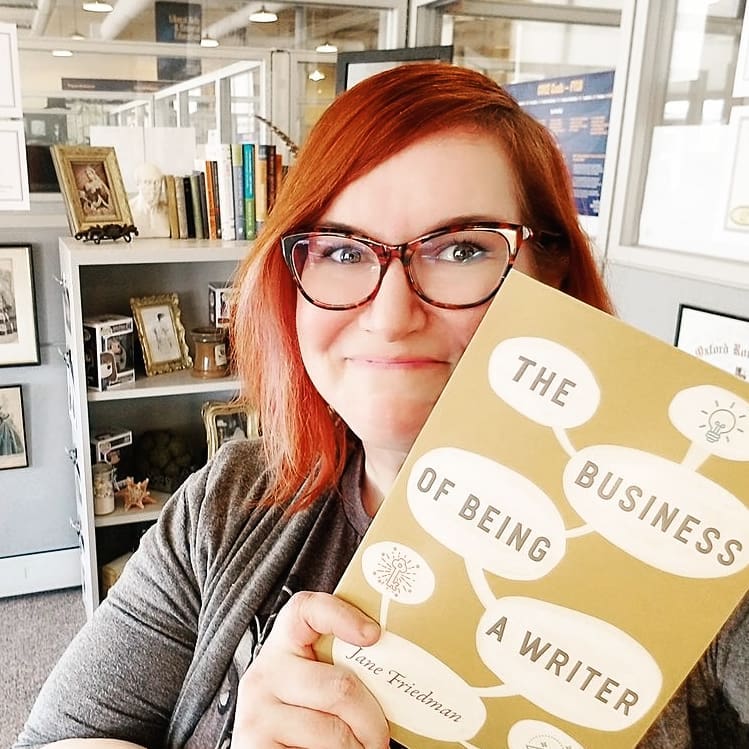
In my cubicle at SNHU in The Millyard, where I oversee curriculum matters tied to English creative writing & literature programs, holding colleague & friend Jane Friedman’s book.
My identity in higher education continues to evolve, especially as I continue to immerse myself in the online world of social media. Prior to working at SNHU, I acted as a department chair & academic program director at Mount Washington (formerly Hesser) College in New Hampshire, where I had been employed for over 6 years. Prior to that, I taught as a high school English teacher at a boarding school for at-risk teens, & before that I had taught as a TA & adjunct faculty member at the University of New Hampshire during my doctoral program.
(You can see my employment, educational, & scholarly history in more detail on my LinkedIn account, which is more appropriate for prolonged discussion of my credentials & professional network, as well as areas of expertise. So, I’ll spare readers too much of that, here.)
And as I delve more & more into my work as “INFJ PhD” on my WordPress blog, Twitter account, & Pinterest boards, I’m connecting more & more with other introverts both in the world of academia & in the writing/publishing ecosystem. My hope is to eventually to start a podcast over the next year, but I believe it’s important for me to learn enough about social media marketing & communications before I launch anything more ambitious than these websites.
It’s funny. Recently, our team took the Gallup StrengthsFinder assessment, & I learned a lot about myself. Getting the full profile yielded some kernels of heightened self-awareness. Yeah, let’s just call it THAT.
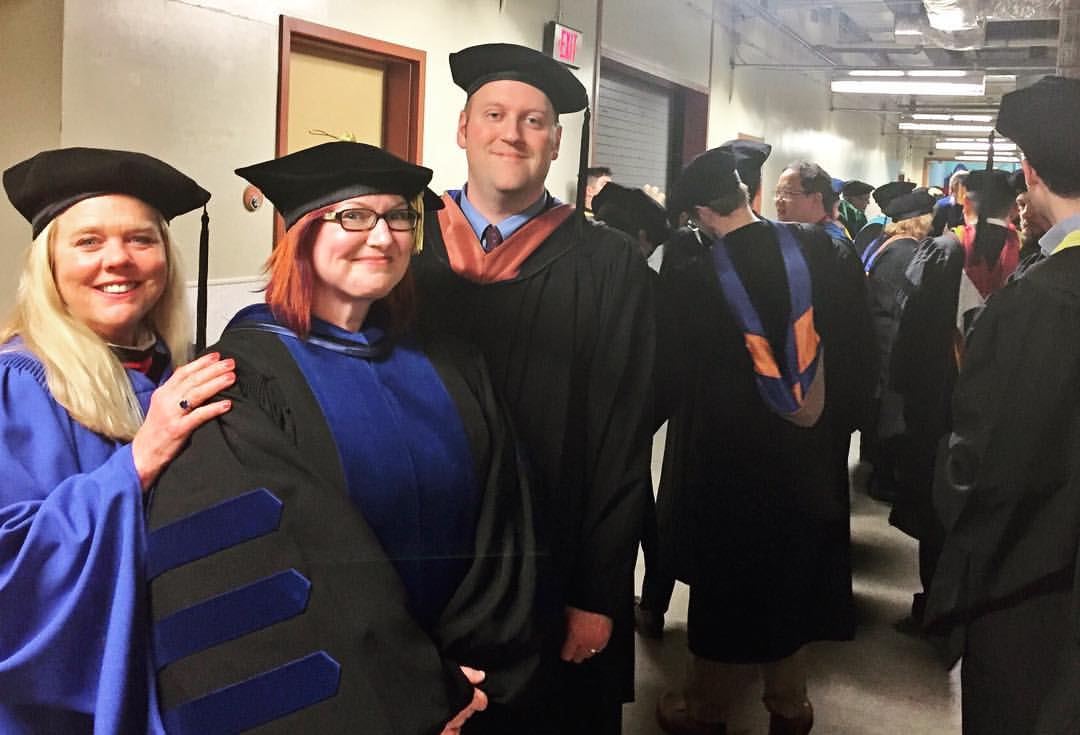
With colleagues & fellow deans Sloan Kelly, MFA, and Derrick Craigie, MFA, at the SNHU Commencement at the SNHU Arena.
What are my top ten strengths, you may ask? Let me catalog them for you: 1) Learner, 2) Focus, 3) Intellection, 4) Relator, 5) Strategic, 6) Achiever, 7) Deliberative, 8) Futuristic, 9) Significance, & 10) Belief. There exist four main domains under which 34 strengths are categorized: Executing, Influencing, Relationship Building, & Strategic Thinking.
My above strengths show that 3 of my top 5 fall under “Strategic Thinking,” with my second highest as “Focus,” one of the most powerful “Executing” themes. When looking at all of my top ten, 4 themes fall to “Strategic Thinking” & another 4 to “Executing.” The other two fall to the two remaining domains, respectively. That means that 80% of my top strengths tie to my brain & introspective activity, while only 20% connects to anything remotely in relationship with other human beings. My introversion, confirmed! (As if there had been any doubt.)
So what does this tell me? Well, I’m someone who innately loves to solve problems & find ways to achieve things others might think impossible. When I meet with an intellectual obstacle, my brain immediately starts looking for patterns & systems, searching for anomalies or potential alternate paths to get to the desired destination. Torn between solving a problem & planning, then putting into place the solution or seeing the realization of a plan, most of my mental bandwidth is spent on intellectual activity either in planning or in implementation. My brain takes up most of my energy bandwidth, so not much naturally flows to others. I have to work at that.
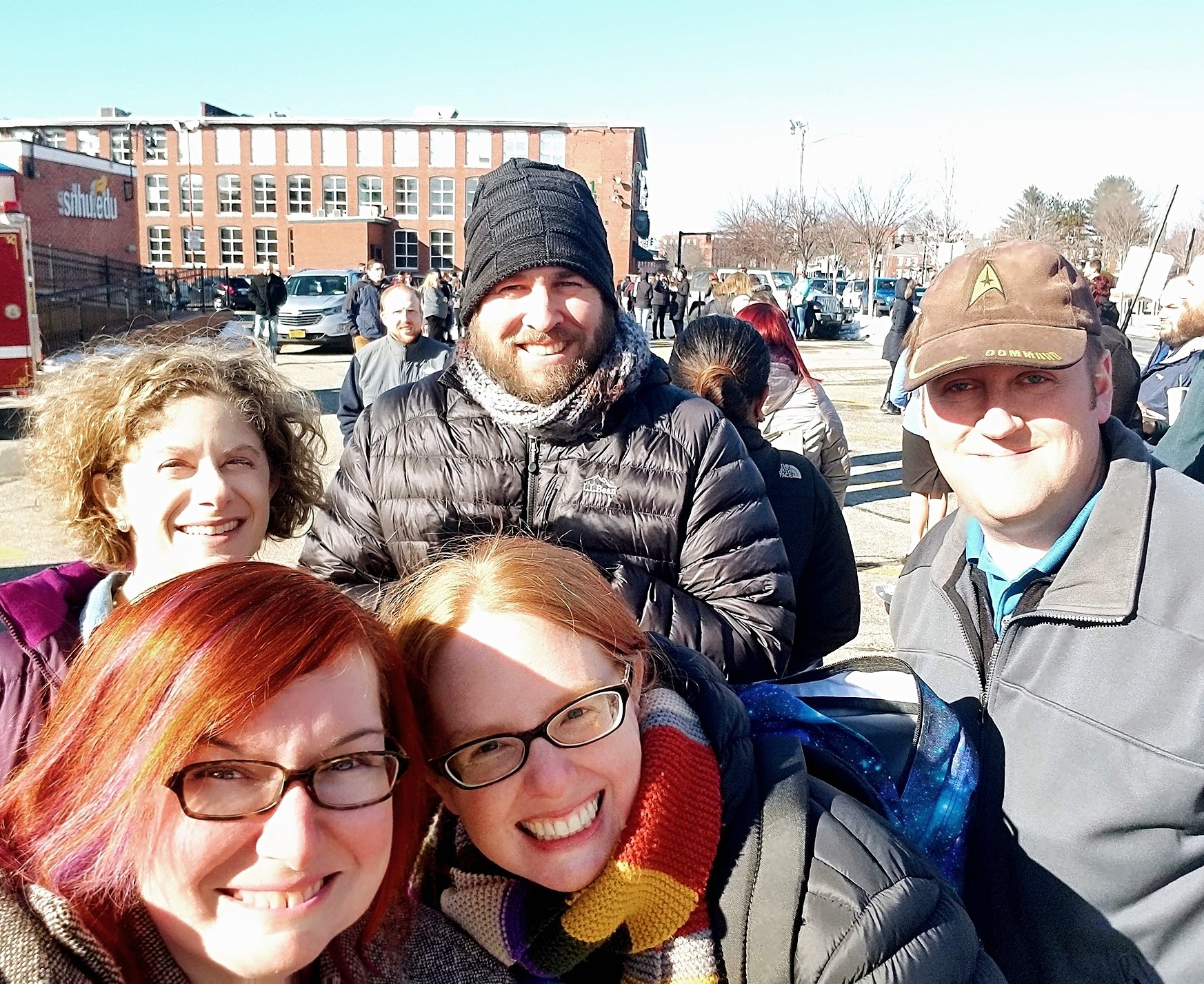
Fire drills in the fall cold are better with colleagues.
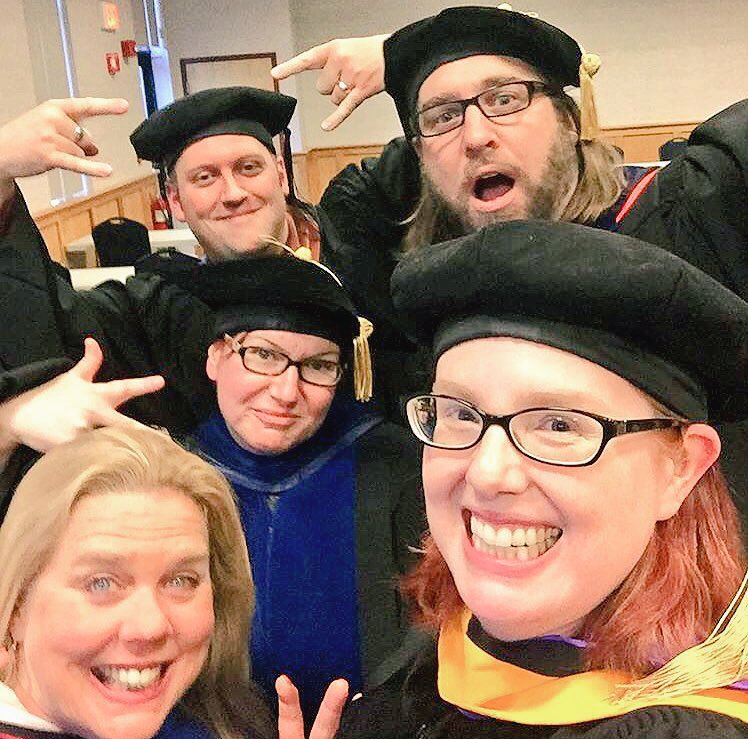
Awards night silliness with fellow team academics.
When I then look at the kinds of themes that come dead last for the list of 34, my hunches find confirmation regarding activities like “winning people over,” “seeking to include people left out,” “looking for consensus,” or “getting other people excited,” which take work for me. What I think I struggle with ties mainly to authenticity. I have no issues in appearing excited or upbeat about something, but the feelings have to be genuine. It pains me to even try to fake things, even though I’ve read the studies about how “faking it until you make it” actually does work.
Certainly, my 4th highest strength, “Relator,” demonstrates that I do enjoy close relationships with others, yet they have to be real, stable, built on trust, & strengthened through hardships or conflicts experienced together. There aren’t shortcuts to becoming friends with significant depth. I’ve only ever experienced an intense friendship that quickly grew at an unheard of or before then never seen rate. That really was an anomaly, & it came with its own lessons learned, reinforcing why it usually does & should take me time to trust new individuals.
And it’s strange because many people who know me well don’t believe that I’m an introvert. They’ll comment on my friendliness, willing to speak up, willingness to collaborate, helpful nature, etc. Like as with other introverts, it’s not that we can’t DO those things, it just takes more energy & effort.
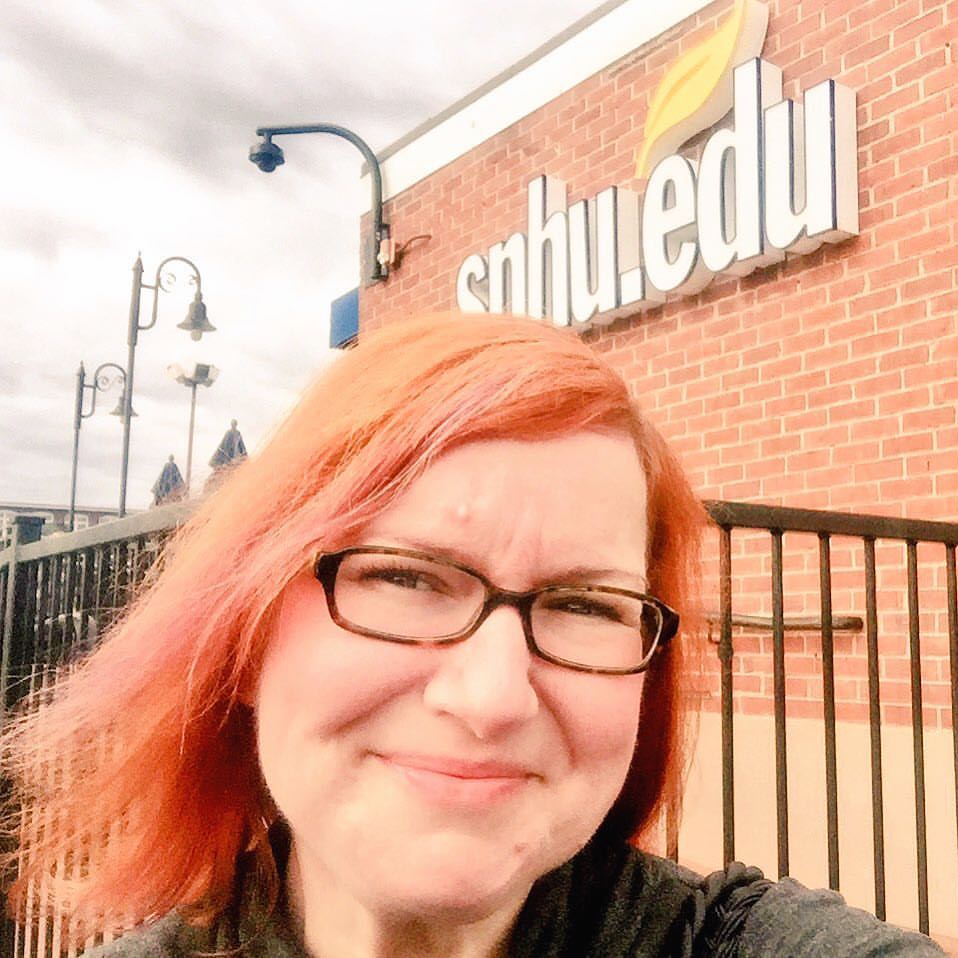
Outside of the Millyard SNHU building, home of support for COCE (College of Online and Continuing Education).
Anyway, I see this as one more piece in a series about finding your strengths in whatever you do as an introvert. Since I was always drawn to education, it’s not a surprise that I eventually would become a instructor, teacher, professor, & eventual higher ed administrator. As with politics, a person who will rise to the upper tiers of higher ed leadership will need to master the human relationships domains, such as those identified in StrengthsFinders, like Influencing & Relationship Building.
My hope is that my work on this blog & through social media channels will help me develop more of those connections & skills. With time, even interviewing, networking, & working on podcast installments with others should aid my development.
For fellow writers, public figures, academics, & administrators who are natural introverts, how do you cope with the expectations needed for success & advancement? How do you find ways to stay motivated & recharged in the midst of long runs of social activities or itineraries? I’m planning to investigate & share my findings with you, but I’m also open to hearing others & their stories.
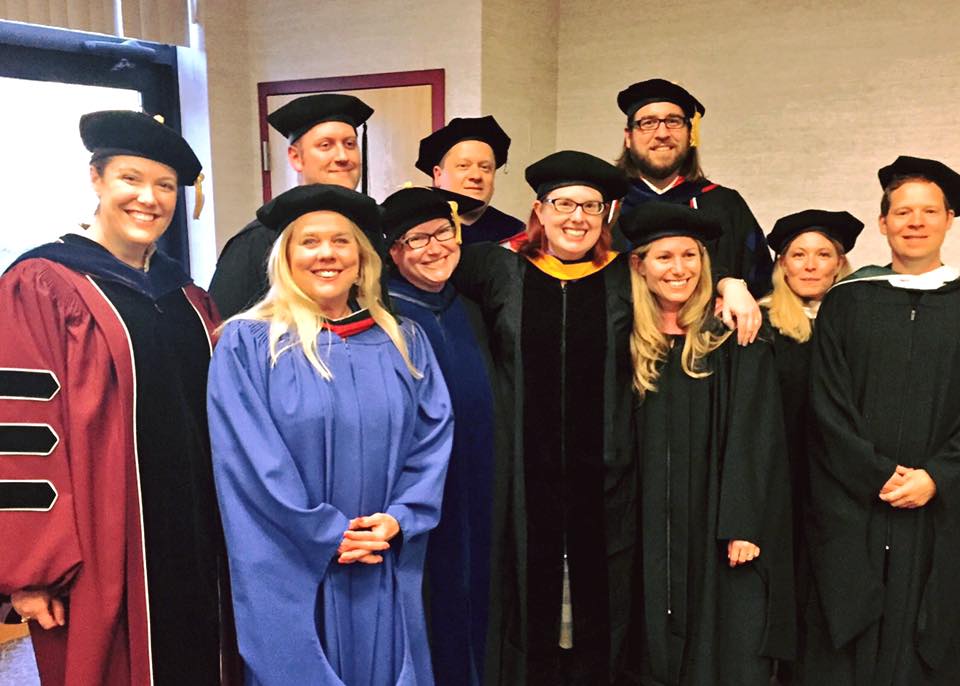
Team Liberal Arts & General Education at SNHU COCE.

Pretty gregariousness here. Yup. Typical Closet INFJ. 😎